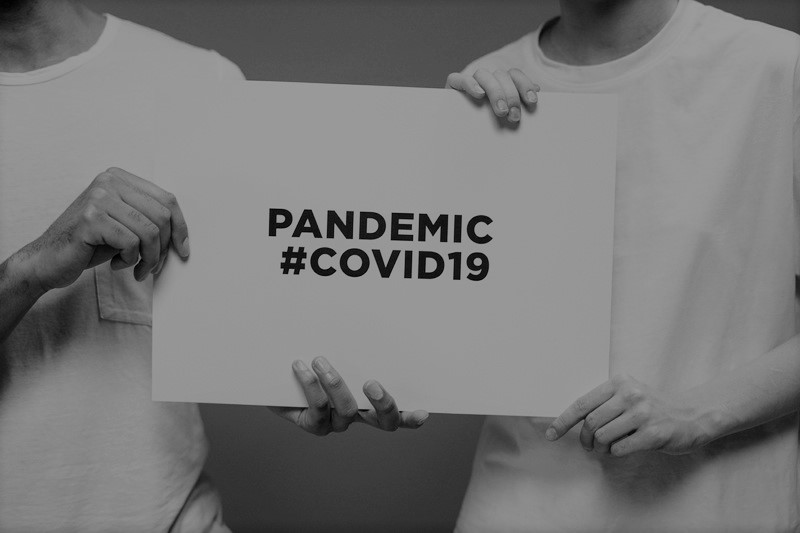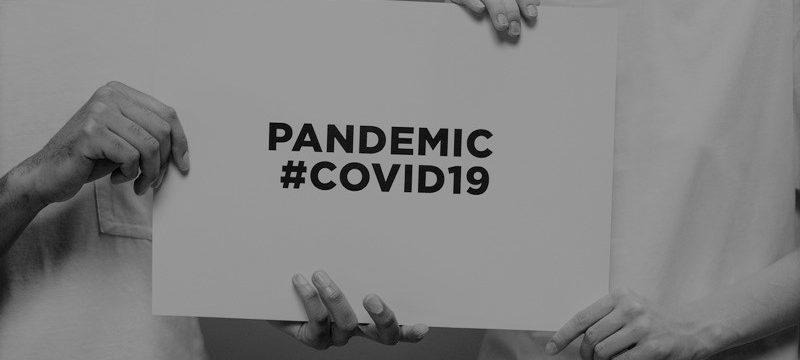
Over the past months, the word ‘pandemic’ has been on everyone’s lips as COVID-19 has spread throughout the world affecting us all. As the virus moved into the populations of countries nearer to our own, many people responded with panic. Social panic is infectious, spreading through communities who may behave irrationally. We saw this in action as people stormed supermarkets to ‘fight’ for supplies they believed they and their families would need in the event of a ‘lockdown’. Others tried to escape from the city to the country or from one country to another, where they felt they might be safer. Some stayed at home, frozen by fear.
In the midst of all this, some of us felt a strange calm. People wrote and spoke of guiltily enjoying the lack of immediate pressure to leave the home, rush for public transport, work in a situation that could be highly-stressed and under-supported. Instead, they were able to work from home at their own pace, dress in comfortable clothes, able to spend more quality time with the clients and students by phone and skype. Many, however, soon spoke of isolation and difficulties in maintaining relationships and then as the virus remained, a kind of despair that the situation of not meeting freely with family, friends and colleagues might not end, at least not soon. Community groups were set up to shop, to collect medical prescriptions, to walk their dogs, to prepare and deliver food for the elderly or isolated or ‘shielding’
Yet, other voices have spoken with a different kind of story. Some with physical disabilities who spoke of this isolation and uncertainty – sometimes panic and fear – as part of their everyday ‘normal’ life. Their struggle now was partially and temporarily shared by a wider population and maybe this would lead to a broader understanding too. It was actually helpful to feel that they were not alone. Then voices from others with anxiety issues and panic disorders spoke of how, in the pandemic, their own issues had lessened, even disappeared: “After years of panic attacks [I] suddenly felt calm now a crisis had arrived and the rest of the world could finally see how scary the place could be “ (https://www.bbc.co.uk/news/disability-53092833; https://www.bbc.co.uk/news/disability-52806058)
We may all be in the pandemic and our stories and experiences of living in the situation may be very different but equally important.
While writing during a panic attack is very difficult but we can still use our pens to take us onto the transitional space of the page to achieve something for ourselves with this gentle prompt: I am writing despite…
The word pan, of course, originates from the Greek God named Pan, who let out a cry to bring about rapid change in the face of attack. The murder of George Floyd has brought a new wave of protest and support for the Black Lives Matter movement. Narratives that are excluded and which are actively suppressed have started to break through the enforced silences to raise questions about identity and belonging. This has been particularly poignant in the face of frontline workers giving their lives to carry out life-saving work, but these inequalities of value are endemic in our societies with a tendency to exclude difference, and to flatten ideas of hardship, which are arguably more visible in the light of this global pandemic.
Feelings of confusion can accompany any quest for place, orientation and community. Therapeutic writing researcher, James Pennebaker, describes the role of writing to explore and express that which has traumatised, which can feel ‘unsayable’ out loud, and which can cause mental and physiological ill health if unstated. Writing can support the basis from which to find words and to voice our sense of belonging, or lack of it.
In planning the writing programme for HEROINES, we are struck by the metaphor of ‘breaking new ground’, of fissures in the familiar and convenient occurring when women quite literally ‘take a stand’, to voice unfairness, to wake societies up from their slumber to new and refreshing possibilities.
In David Whyte’s well-known poem ‘Start Close In’, he suggests we:
Start with
the ground
you know,
the pale ground
beneath your feet,
your own
way of starting
the conversation.
Conversation invites other voices, spreads the word and points out the tremors, the faults in our fundamental terra firma. One realisation from working on HEROINES is that the individualistic nature of the classic ‘hero’ character, the sole warrior, is different in the face of feminist, queer and black feminist movements, where a groundswell occurs that destabilises the status quo. This is not achieved by one person alone but by the infectious nature of truth spoken to power, sometimes having to be reiterated through many generations. Noticing these iterations, temporally and geographically brings strength to our pens and our voices; we feel supported by our ancestors and fellow thinkers.
For many of us during lockdown, we may have been alone, lonely, overworked, bewildered, depressed. However, turning to those who have trodden a path to make our own mapping clearer, can bring courage and resilience, even if we only write alone in our rooms.
And using this courage to reach out to expressive writing groups (in person or online) can bring gifts never imagined in the form of intimacy, connection and solidarity. Look for groups that focus on the therapeutic aspects of writing, under the following titles:
Writing for wellbeing
Ways with words
Writing for connection
Creative writing for confidence
Writing for self-discovery
Writing for you
Writing for reflection

Deja una respuesta
Lo siento, debes estar conectado para publicar un comentario.